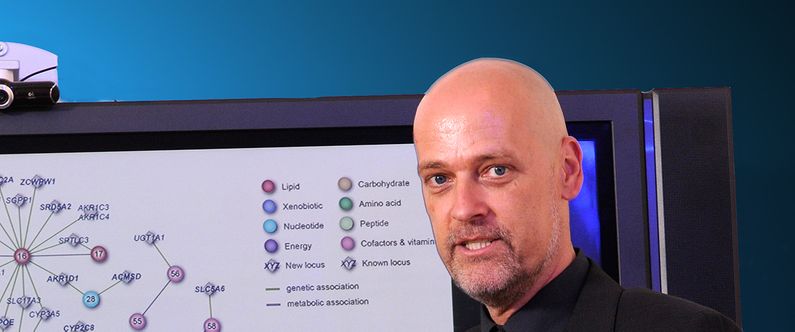WCM-Q research underpins international effort to create genetic map of human proteins
 Research at Weill Cornell Medicine-Qatar led by Dr. Karsten Suhre has been expanded upon by an international team of scientists, leading to a detailed genetic map of human proteins.
Research at Weill Cornell Medicine-Qatar led by Dr. Karsten Suhre has been expanded upon by an international team of scientists, leading to a detailed genetic map of human proteins.
A groundbreaking study first conducted by researchers at Weill Cornell Medicine-Qatar (WCM-Q) has been expanded upon by an international team of scientists, leading to a detailed genetic map of human proteins.
The work, led by scientists at the University of Cambridge and MSD, characterized the genetic underpinnings of the human plasma ‘proteome’, identifying nearly 2,000 genetic associations with almost 1,500 proteins. Previously, only a small fraction of these associations were known, mainly because researchers could measure only a few blood proteins simultaneously in a robust manner.
The researchers used technology (“SOMAscan”) developed by a company, SomaLogic, to measure 3,600 proteins in the blood of 3,300 people. They then analyzed the DNA of these individuals to see which regions of their genomes were associated with protein levels, yielding a four-fold increase on the study previously published by WCM-Q. The new study has been published in Nature, a leading scientific journal. The earlier study was supported by the Biomedical Research Program (BMRP) of Weill Cornell Medicine-Qatar, a program supported by Qatar Foundation.
Dr. Karsten Suhre, professor of physiology and biophysics and director of the Bioinformatics Core at WCM-Q, led the earlier research in Qatar last year, which revealed many previously unknown links between genetic variations and a series of debilitating conditions, including Alzheimer’s disease, heart disease, autoimmune disorders and cancer. Following publication of these findings, Dr. Suhre was asked to participate in the latest study.
He said: “It was a great honor to part of this huge study. It takes our own research to the next level, but it is also gratifying see that Qatar was there at the start, providing our own contribution to the global knowledge of human biology and genetics. It is also demonstrable proof that WCM-Q and the Qatari leadership’s goals of transforming Qatar into a knowledge economy and a hub of world-class scientific research in the region have come to fruition.
“The technology that was used in the new research – the SOMAscan – is available to researchers in Qatar, and with Qatar BioBank we have a resource that is allowing researchers in the country to unlock the secrets of the human genome, and specifically the Arabic genome.”
He added: “This is a hugely valuable resource that will be used for decades to come, hopefully heralding therapies and treatments for a range of diseases and conditions that are prevalent in the MENA region.”
Dr. Khaled Machaca, associate dean for research at WCM-Q, said: “The use of proteomics biomarkers to correlate with disease progression and prognosis is a powerful approach that is likely to become more and more in use in the future. It is very gratifying to see such approaches being pioneered in Doha at WCM-Q through the efforts of Dr. Suhre as this truly validates the vision of Qatar and Qatar Foundation to establish the country as a hub of knowledge generation rather than just knowledge transfer.”